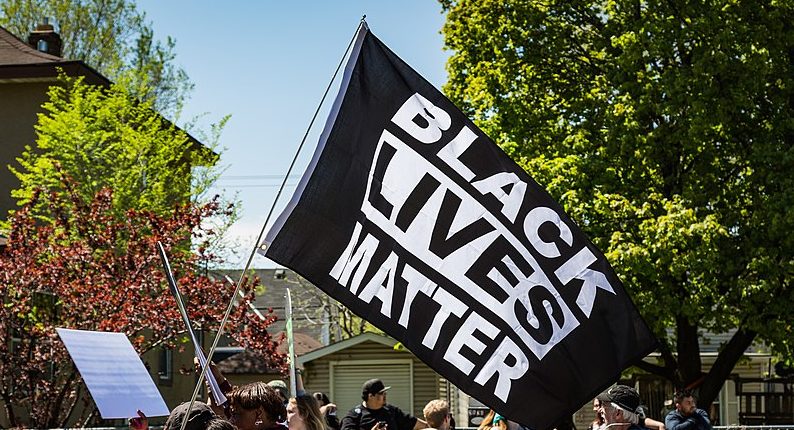Film stars on police brutality: vapid displays and authentic efforts
The video of George Floyd’s murder has been seen by millions across the world and triggered a race war in America. Many have participated, with an influx of people on social media posting links to petitions, places to donate, and ways to educate yourself on police brutality and systemic racism. Film stars are included in this list who are also promising a more anti-racist industry – yet this is now a time where all celebrities are being scrutinised and screened for whether what they write and post is genuine or performative.
An embarrassing video of white actors claiming ‘I Take Responsibility’ was vilified by the public last week. Kristen Bell and Sarah Paulson, amongst others, confessed they had failed in the past to tackle racism when it was seen. The black and white video is cringey, and presents itself like a white saviour complex. Black people don’t need to see a video of privileged white people admitting to being complicit to racism – that much is obvious. They need change, and they need donations. However, some admitted this tone-deaf performance has a better purpose than the embarrassing rendition of ‘Imagine’ when quarantine started.
The black and white video is cringey, and presents itself like a white saviour complex
The Kardashians also came under fire for seeming insincere. They posted outrage on their stories at the police brutality and shared links for petitions and places to donate, but people on Twitter complained that for a family with such wealth and influence, their contribution was halfhearted. A reposted quote and lazy hashtag activism lack the efficacy of monetary donations.
The model turned actor Cara Delevingne participated in a Black Lives Matter chain on Instagram, where they were challenged to tag 10 friends who ‘will not break the black lives matter chain’. She tagged Kendall Jenner, who also participated. Many fans showed outrage – the challenge reads as performative and insensitive as it is a warped and commercialised display of solidarity that lacks the genuine substance for any change.
Emma Watson was also criticised for her repost of #blackouttuesday. She edited the black square to have a white edge which suits her feed, coming across as performative and superficial. However, others came to her defence to argue that Watson is an ally, as her fight for feminism has always included black women, and had just released a playlist on her Spotify of podcasts where people can educate themselves to become anti-racist.
However, many celebrities have shown their desire to learn about systemic racism and recognise their own privilege. Selena Gomez handed over her Instagram page to black activist Alicia Garza which is an effective way to use her white privilege as she amplifies a black voice, an activist who can effectively educate her wide audience, instead of Gomez infringing on the black experience. Musician and actor Harry Styles was met with approval as he wrote that ‘I do things every day without fear, because I am privileged…Being not racist is not enough, we must be anti-racist’. He also wrote that he was donating directly to bail funds for arrested protesters and was seen at protests in California. Seth Rogen, Janlelle Monae, Jameela Jamil and Steve Carrell have donated to the Minnesota Freedom Fund, a charity which helps pay bail for low-income protestors. Other celebrities like Blake Lively, Ryan Reynolds and the Jonas brothers have also donated to various organisations.
However, many celebrities have shown their desire to learn about systemic racism and recognise their own privilege.
Star War’s John Boyega was met with praise for his impassioned speech at the London Black Lives Matter protests. The video that went viral includes him saying ‘Black lives have always mattered. We have always been important. We have always meant something.’ He joked that ‘I don’t know if I’m going to have a career after this, but fuck that’ – such are the dangers of speaking about politics when you are famous.
It is unrealistic to expect every single person in the film industry to previously be well-schooled on systemic racism (‘I Take Responisbility’ reeks of this). We keep seeing it – a slightly embarrassing and feigned attempt for solidarity, which albeit perhaps comes with good intentions, is simply not enough, especially when they butcher their delivery by highlighting their own ignorance and internalised privilege which does not allow them to see where they make painful mistakes.
But making mistakes is an important factor of accountability; non-black people must be on a constant journey to dismantle their internalised racism, which does include slip ups. But for celebrities to make public errors, whose incorrect words and sentiments can affect the wide audience they are reaching, especially now whilst the whole world is closely watching, is just not enough.
But weeks later, will there be consistency? Or will a week’s posting for awareness be simply that? I want these celebrities commitment to not only exist during this period of spotlight and coverage on the Black Lives Matter movement. I hope that their solidarity is real, and they have taken on what they have learnt, and have genuinely dismantled their whiteness, which should then also be seen in the movies that appear on our screens in the future. Right now, only 14% of directors are black, and out of more than 3000 Academy Awards given, 43 were awarded to black people. White actors and white people in the film industry need to be the change that they are tweeting they want to see.

Comments